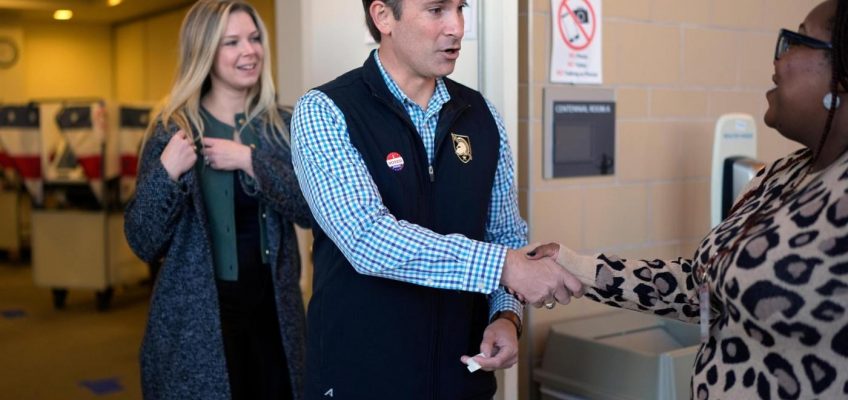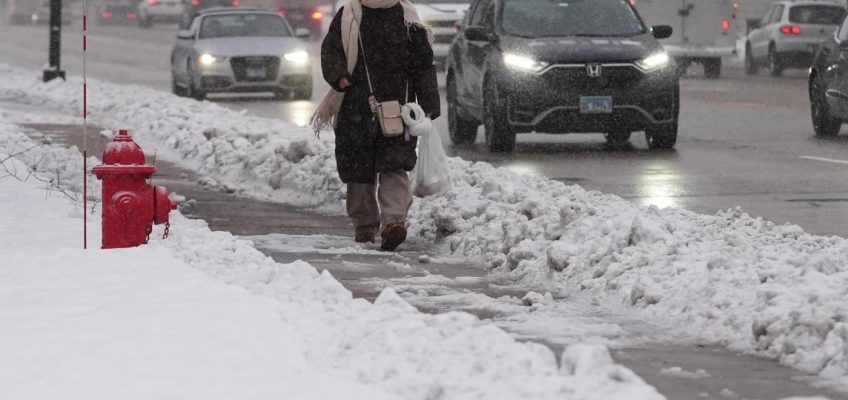Democrats haven’t won a U.S. Senate race in Texas for more than 35 years. In 2018, Beto O’Rourke came the closest when he lost to Ted Cruz by only 2.6 percentage points. In 2024, Cruz, boosted by Donald Trump’s performance in the state, beat then-Congressman Colin Allred by 8.5 percentage points. But, as many Texans fail to see the Republican promises of economic prosperity materialize, Democratic candidate James Talarico is running on the slogan to “start flipping tables” of Texas politics’ status quo.
A former San Antonio public school teacher and current Presbyterian seminarian, the 36-year-old Talarico first won a seat in the Texas House back in 2018. Since then, he’s gained a reputation as an effective advocate for public schools and an unyielding opponent of school vouchers and right-wing zealotry who’s effectively built and wielded a massive social media following.
Since launching his campaign in September, Talarico has raised a boatload of cash and garnered a Beto-esque number of fawning national headlines. The question is centered around whether this young man of faith has what it takes to not just flip the political tables, as his campaign slogan portends, but to flip the state of Texas. Talarico already has endorsements from more than a hundred state and local officials, as well as kudos from former president Barack Obama for his leadership in Texas’ redistricting battle. But first he’ll have to win a contested primary against repeat-runner Allred and, possibly, Congresswoman Jasmine Crockett.
The Texas Observer spoke with Talarico in late November about the policies he believes can unite working people, his faith, and why he thinks he can beat John Cornyn or Ken Paxton.
TO: You’ve been able to engage Texans from different sides of the political spectrum around the fight for public education and against school vouchers. How does that shape how you approach this campaign?
I think the biggest divide in our politics is not left versus right, but top versus bottom. And I think that voucher fight was a prime example. It was two billionaires from West Texas who were trying to close our public schools all over the state, and we were able to build a coalition of Democrats, independents, and Republicans, rural, urban, suburban, Black, white, brown—a coalition to take on those two billionaires and and protect and strengthen public education. I remember I was walking around the halls of the Capitol during the session with those self-described MAGA moms, and we were knocking on the doors of legislators, trying to get as many votes as we could to kill the voucher bill. And we were successful time and time again until they were finally able to push it through at the end of this last session with some pretty dirty tactics.
How does the working-class politics you describe translate to policies you would prioritize in the Senate?
I’ve served for eight years in the trenches of the Texas Legislature, and even as a Democrat, I’ve been able to pass pretty major legislation to help working people in our state: the first ever cap on insulin copays in Texas history; a bill to import cheaper prescription drugs from Canada into Texas; the first early childhood bill in recent memory that’s going to bring down the cost of childcare for working parents; and, most recently, a major housing bill that’s going to hopefully make housing cheaper for folks in Texas. I think there’s so much that I could do at the federal level to continue that work. The cost of childcare, the cost of housing, the cost of healthcare—those are, I think, three of the biggest pain points that Texans feel every day. If we’re going to make progress on all those issues, I would like to see the U.S. Senate prioritize comprehensive political reform: Ban super PACs and billionaire secret donations, ban lawmakers from insider trading—from turning around and becoming lobbyists right after they finish their public service. And finally, once and for all, ban gerrymandering in every state in the union.
What is your position on healthcare reform?
I am very interested in fighting for a public option, so that every single Texan, every single American, would have the ability to join Medicare and would have that option of affordable, quality coverage. I think there is public support and bipartisan interest in that kind of policy.
Immigration will once again be a hot-button issue. Many Democrats have recently moved to the right on the issue; what position are you taking on immigration that can possibly unify working people on the left and right?
I really do think that most Texans and most Americans are in the same place on this issue. Our southern border should be like our front porch. There should be a giant welcome mat out front and a lock on the door. Those two things are not mutually exclusive. Most people, including me, are pro-immigrants. We know that folks who are coming here to contribute to our economy, to live their version of the American dream, those immigrants make us stronger and richer. I think most Americans are also pro-security. We have a right to know who’s coming into our country, just like you have the right to know who’s coming into your house. So if I’m elected, I would hope to be one of the senators crafting comprehensive immigration reform that protects public safety and also creates an orderly, speedy process for immigrants who want to come and make us stronger.
You’ve expressed that it is your faith and not partisanship that grounds your politics. Has that drawn more independents and conservatives to your campaign?
My politics grows out of my faith. I was taught when I was little, by my granddad, who was a Baptist preacher in South Texas, that we Christians are supposed to follow Jesus’s two commandments: to love God and to love neighbor. And you know that commandment to love our neighbors is inherently a public thing. Politics is just another way that we figure out how we treat our neighbors and how we treat each other. So that’s what led me into public service—first as a public school teacher and now as a public official. It allows me to connect with voters who maybe aren’t in my party or who don’t share all of my beliefs. We’re able to connect on that deeper ground. I’ve seen so many people come into our events, and met so many people who don’t consider themselves Democrats, who consider themselves Independents or Republicans or former Republicans, and many of those conversations begin with our shared faith.
Why would you be a better general election candidate than Colin Allred or Jasmine Crockett, if she runs?
I’m not interested in tearing down my fellow Democrats, because we are all on the same team, the same team that’s trying to change the politics of this country. But, I think that I’ve got a compelling case to make. I first got elected to the Texas Legislature by flipping a Trump district, winning in a district that hadn’t voted for a Democrat in 30 years. And I did that by running an aggressive, authentic, unorthodox campaign that brought people together. On election night, we flipped that district with 51 percent of the vote. And so I want to take those skills, both electoral and legislative, and win this nomination and win the Senate seat, not just for Democrats, but for all Texans.
On the Republican side, which candidate would you have an easier time beating, John Cornyn or Ken Paxton?
Both of them are far more interested in serving their billionaire megadonors than serving the people of Texas, and both of them have sold us out time and time again. Obviously, Ken Paxton’s crimes are well known. I was part of the bipartisan majority in the Texas House that impeached our corrupt attorney general. But in some ways, I think John Cornyn is even more corrupt than Ken Paxton because he was the deciding vote on that Big Ugly Bill that’s going to kick Texans off their health care, take food out of the mouths of hungry Texas kids, all just to give another tax break to his donors.
This interview has been edited for length and clarity.
The post With Primary Field Still in Flux, James Talarico Pitches His Big Tent Revival appeared first on The Texas Observer.



